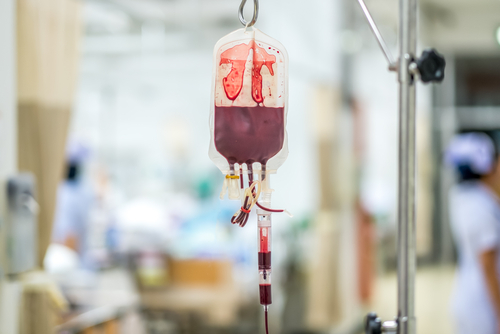TN HIV transfusion case: Why a follow-up is important after donating blood
Partner Content Jan 12, 2019
As per Tamil Nadu State AIDS Control Society, those found to be HIV positive must be informed in person and referred to a government centre for counselling.

In late December, the Tamil Nadu health department officials and doctors at the government hospital in Sattur, Sivakasi district, were under fire after a shocking lapse in the screening that culminated in a 23-year-old pregnant woman being transfused with HIV positive blood. The incidents, which led to the negligence, now give rise to another important question - as a blood donor and a lab technician, what are the follow-ups that need to be done after someone has donated blood?
According to sources from various Chennai-based blood banks, Tamil Nadu State AIDS Control Society (TANSACS) had issued a memo to blood banks in the state a few years ago, asking blood banks to take certain measures to ensure that donors, who are found to have discrepancies in their blood during the screening, are informed. Those who are found to be HIV-positive must be informed in person and referred to a government centre, where they would be counselled and advised.
When this particular incident of medical negligence was reported from Sattur, it came to light that the donor was informed about his HIV-positive status as part of a medical examination conducted for a VISA application process, in 2018. However, prior to this, in 2016, he had donated blood, during which, it was discovered that he was HIV-positive.
Keeping with standard medical protocols, the lab called the man over the phone and informed him there was a problem in his blood, without revealing more details, and also asked him to come in for a follow-up. The seriousness of the situation was neither highlighted to him nor did the technicians take the effort to ensure he returned for the follow-up. As a result, the HIV-infected blood was unknowingly transfused to a pregnant woman.
The blood donation procedure
When a person volunteers to donate blood, certain basic tests are carried out to ensure a donor is healthy and that donating blood will not cause him/her harm. Donors are given a questionnaire to assess their general health and lifestyle to rule out the possibility of any exposure to certain blood-borne diseases. For example, those who have travelled to any localities with a high prevalence of malaria are not allowed to donate blood for a period of at least six months, if not more.
This screening is not only undertaken to ensure that recipients are receiving safe blood and blood products but also to ensure that donors, too, are not putting themselves at risk by donating blood. However, once a person has donated blood, there are a few steps they can take to ensure there are no problems.
Screening is undertaken for the presence of HIV, Malaria, Hepatitis and other such blood-borne pathogens. If someone is found to have any abnormalities or issues, the technician from the lab or hospital is required to call up the patient, inform him/her about it and call for a further work-up.
Why donors don’t turn up for follow-up
Here is the setback in this standard procedure of a blood screening. “Many times, patients get a little anxious when they receive a call from a hospital or a lab. These facilities do not disclose the information about the blood result. In fact, as a policy, confidential patient information is not given over the phone. As a result, some choose not to follow-up with the lab,” explains Dr Amrose Pradeep, who works with YRG Healthcare, an HIV/AIDS care centre in Chennai.
“In the past few years, we found three donors to be HIV positive. Following the protocol, we called them and informed them about the issue in their blood. One person outright refused to come in for further testing, while two others became extremely annoyed with the way certain logistical issues were presented when they were referred to the government centre,” an employee at a blood bank in Chennai, on the condition of anonymity, told TNM.
As per the notice issued by TANSACS, the blood bank must notify both the donor as well as the TANSACS of the patient’s blood status. However, the source alleged that the TANSACS is not organised enough to ensure that follow-ups are conducted for all patients found to have discrepancies in their blood and that they do not have an efficient referral system for the patients who need to be sent to a government-approved counselling centre. This left many patients in the lurch, often forcing them to give up on the issue.
“This should be discouraged,” says Dr Amrose, adding, “It is not only HIV; it could be malaria or hepatitis or even something as simple as anaemia, which might have been discovered during the blood screening and can even be corrected with medications.”
Dr Amrose says that both donors and technicians/doctors must take the initiative to address the problem. If a donor receives a call, it is vital that they go in for a follow-up to find out what the issue is.
This story was originally published on The News Minute and is reprinted here with permission. It can be viewed on https://www.thenewsminute.com/article/tn-hiv-transfusion-case-why-follow-important-after-donating-blood-94621
-
Exclusive Write-ups & Webinars by KOLs
-
Daily Quiz by specialty
-
Paid Market Research Surveys
-
Case discussions, News & Journals' summaries